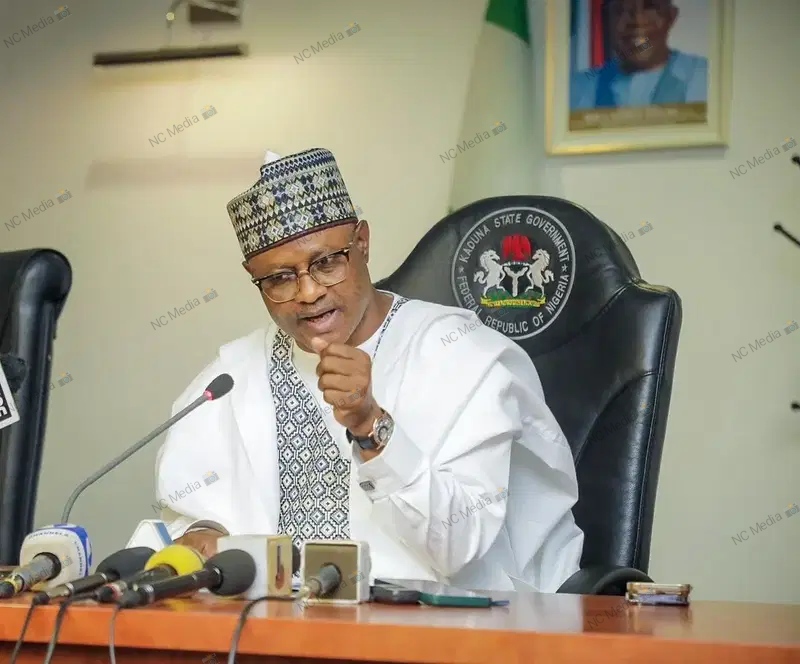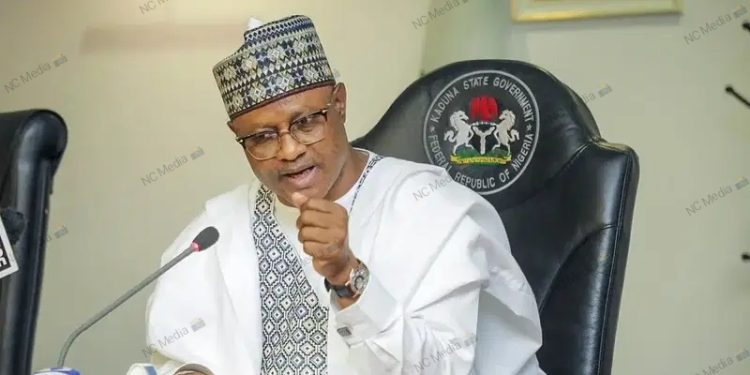In a stunning and frank declaration that has sent ripples through Nigeria’s political landscape, Kaduna State Governor Uba Sani has confronted a growing narrative head-on. While many northern politicians and stakeholders have been vocal in their claims of marginalization under President Bola Ahmed Tinubu’s administration, Governor Sani is charting a different, and perhaps more powerful, course. His assertion is not merely a defense of the president, but a radical and uncomfortable call for the North to look inward and take responsibility for its own persistent challenges.
The governor’s comments, made during a recent public engagement forum, have ignited a firestorm of debate. He argued that the North’s long-standing problems of insecurity, poverty, and a staggering number of out-of-school children are “self-inflicted” and predate the current administration. This perspective directly contradicts those who have used a two-year performance window to accuse the presidency of neglecting the region that overwhelmingly contributed to its electoral victory.
ALSO READ: https://nationscuriosity.com/nigerias-national-grid-gets-a-1-2m-boost-for-battery-energy-storage/
Governor Sani’s message is a departure from the traditional blame game that has characterized Nigerian politics. He pointed out that for decades, northern leaders had presided over a steady decline in socio-economic indicators without a unified and strategic response. “Where were the loud voices now blaming Tinubu when these things took root?” he reportedly asked, challenging the hypocrisy of those who remained silent for years but are now quick to assign blame.

The governor’s remarks are grounded in a deep understanding of the North’s challenges. He highlighted that when he took office, a significant number of schools and healthcare centers in Kaduna State were abandoned due to insecurity. This is not a problem that can be laid at the feet of a two-year-old presidency. Instead, it is a crisis that has festered over many years, fueled by a lack of decisive leadership and a failure to address the root causes of underdevelopment.
Sani insists that the North’s leaders must move beyond a dependency on “Abuja” to solve every problem. He advocated for a shift in focus from mere complaints to proactive, sub-national governance that tackles issues at their source. His own administration in Kaduna serves as a case study for this approach. He highlighted his efforts to foster peace and inclusivity among diverse ethnic and religious groups, a critical component in fighting the insecurity that has crippled the region’s development. According to him, President Tinubu doesn’t need to come to the North to teach governors how to run their states—that is the responsibility of local leaders.
This brave stance by a sitting governor signals a potential turning point in the conversation about regional development in Nigeria. It moves the dialogue from one of political posturing to one of genuine accountability. Sani’s message is a call to action for the Northern elite to rise and take charge of their destiny, to stop waiting for federal handouts, and to invest in the human capital and infrastructure that will truly lift the region out of its current state.
While some may see his comments as a betrayal of the North, they can also be interpreted as a powerful act of leadership. It is a voice of reason demanding that the region confront its own past failures to secure a better future. It is a stark reminder that true progress is not born from external blame, but from internal reflection, collective action, and a willingness to accept an uncomfortable truth. In a political landscape defined by noise and division, Governor Uba Sani’s quiet challenge to his own people is a suspenseful question: Will the North heed his call, or will it continue to seek a scapegoat?
Nations Curiosity Reporting


